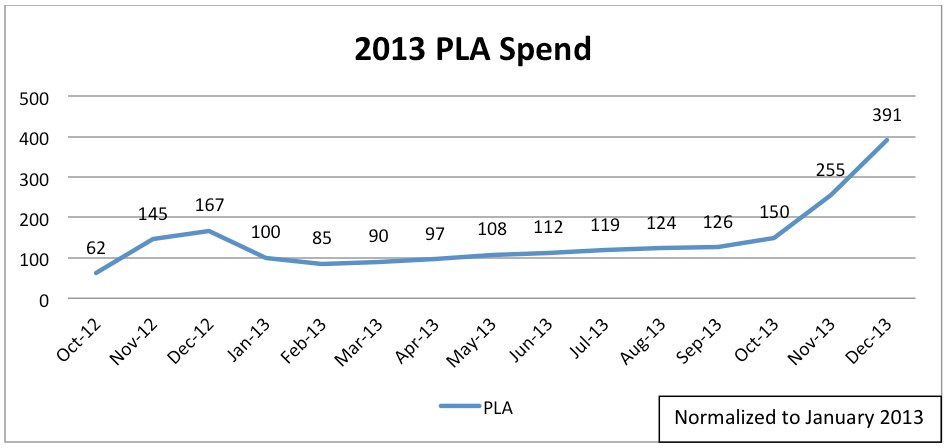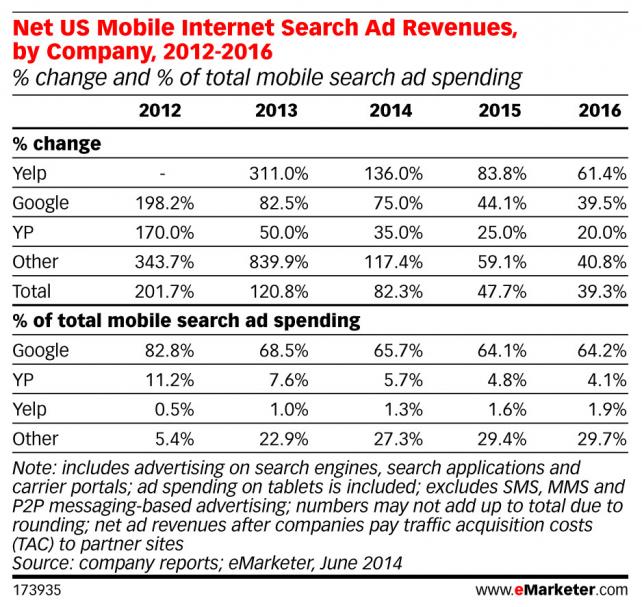2014, the year of the mobile overtook desktop, is about to finish. And it is time to start assessing the changes that this prevalence of mobile web has brought about. In particular lately, I’ve been intrigued by the changes happening in search, as in SEO and SEM. There is evidence of an ongoing change of perspective brought by the era of mobile devices, of course nothing too disrupting, because search is not a world of explosive revolutions, but rather that of the straw that digs the rock.
The first keyword for these developments is VISUAL, as in: more images, icons, emoticons and also as larger fonts. SEM has seen a steady increase for Product Listing Ads. According to recent data top e-tailers spend on this medium an average of 63% of their paid search budget.
Conversely, in organic search results, entries are increasingly graphically organized on the page. They are now served in a variety of formats like snippets and images; as a result, users scan organic results faster and better on smaller screens.
USABILITY, another 2014 trend, seems to reign supreme at Google, as it tries to keep up with the loss of users who are increasingly preferring in app search. It is becoming clear that while advertising and search budgets are moving to mobile, consumers are moving away from browser search (Google kingdom) to in-apps search for product, places and other recommendations, in particular Yelp has been performing well in this.
Much of Google’s latest search developments have been focusing on mobil. GoogleBots can now detect mobile rendering exactly as users do on their devices. Currently, mobile sites that generate errors are penalized in mobile search results, but experts forecast that soon mobile UX will be part of Google’s algorithm.
Google Now is another important piece of the mobile search news puzzle. A direct competitor of Apple’s Siri and Windows’ Cortana, Google voice activated service access not only the web but its cards use information from your device, like location , and from other Google products (Gmail, G+, Chrome), plus data from third-party products that you allow Google Now to access.
Focus is shifting from what sites do on their pages/sites (keywords, links, metatags if you’re still using them…), to who is searching. Search is moving towards optimizing around the user with results relevant to their location, history, profile
As the importance of classic SEO staples like keywords and links is decreasing, content strategy and UX (especially mobile) are gaining ground. This doesn’t mean that keywords, links are no longer important, let’s say they remain as the foundation of search, they are givens of the search industry, but not crucial factors to be found by interested users.
The emphasis is shifting on effective communications practices to provide the kind of regular, useful, authentic content that will reach their target audiences and stakeholders when they need it and in the best format for the device they’re on.


